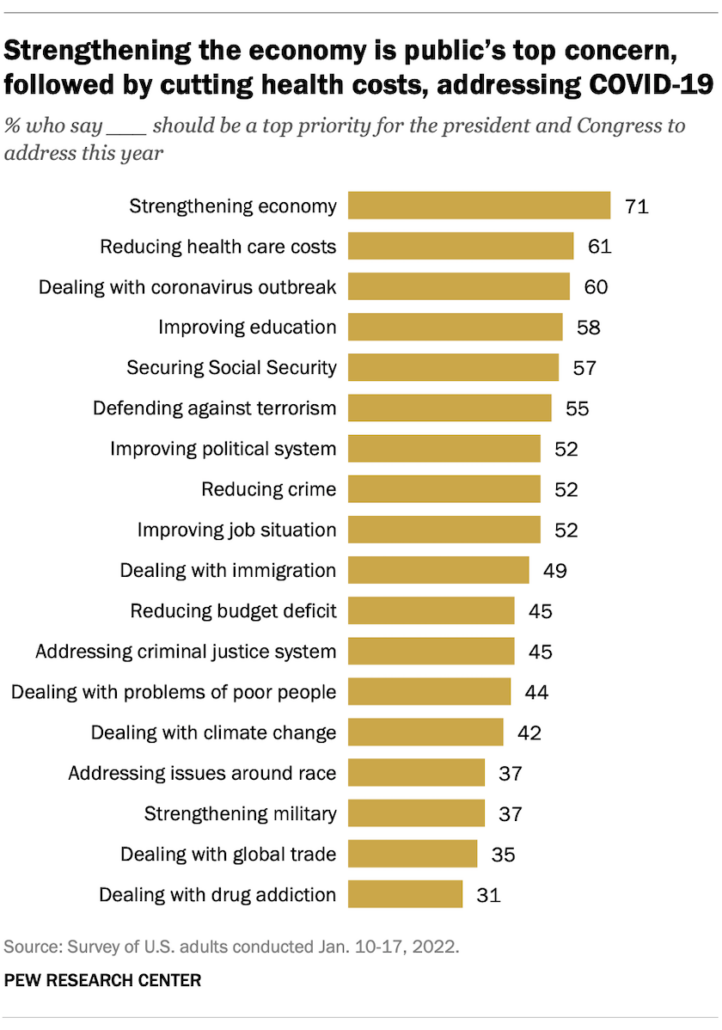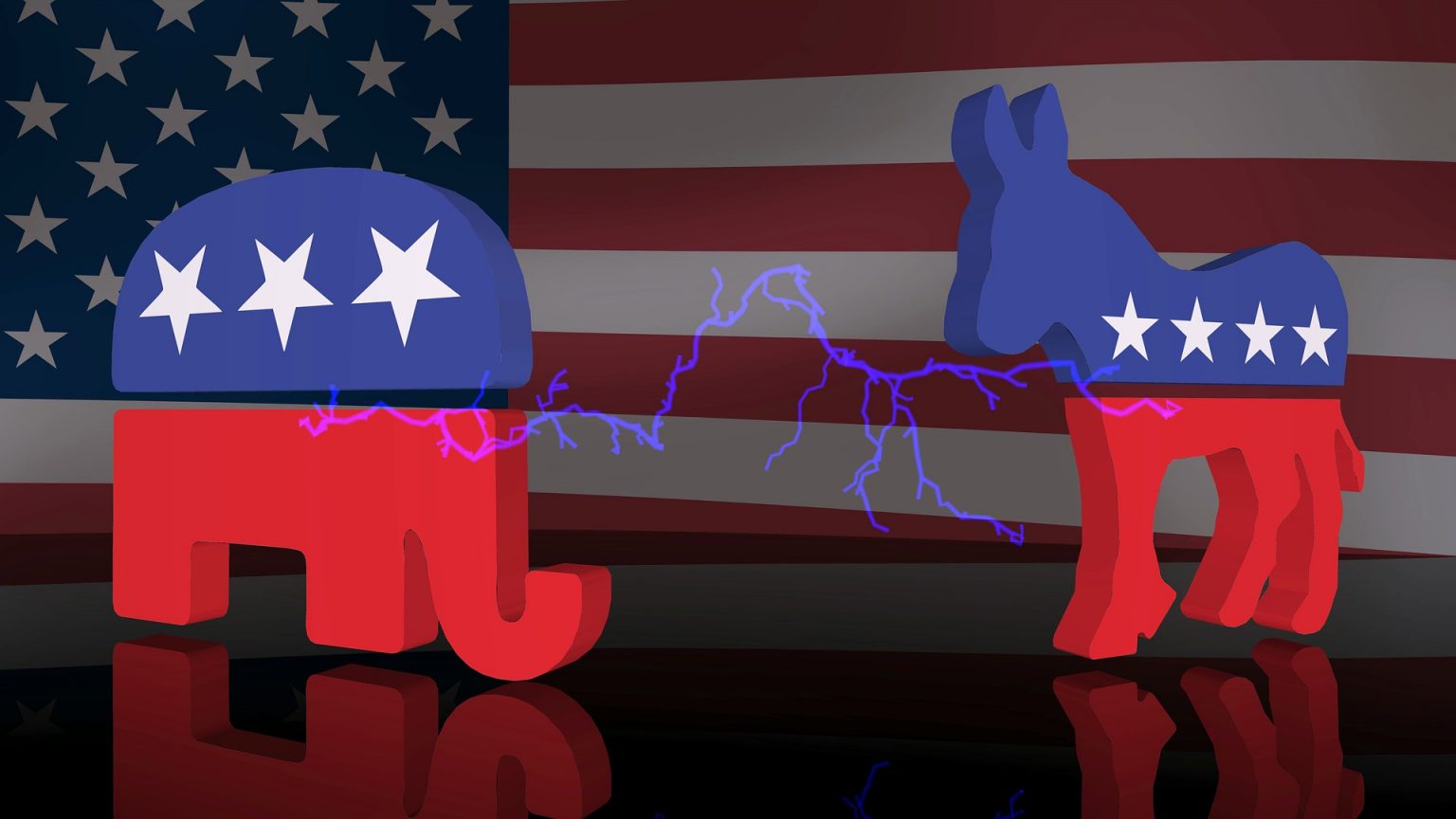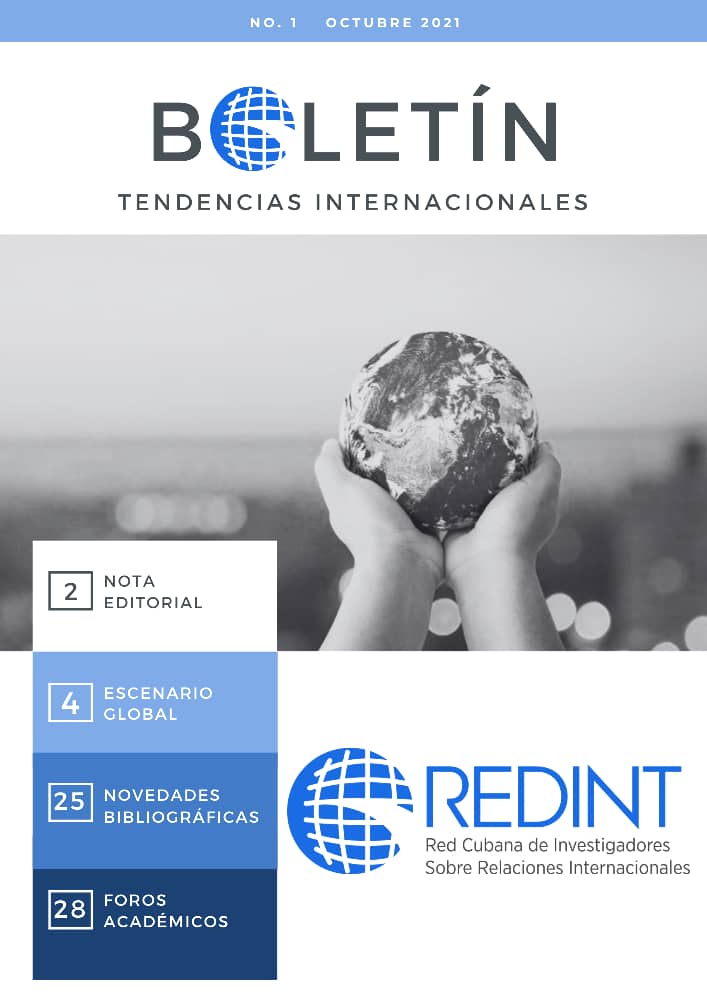US Public’s Top Priority for 2022: Strengthening the Nation’s Economy
As the coronavirus pandemic enters its third year, more Americans view strengthening the U.S. economy as a top policy priority than say the same about dealing with COVID-19
Pew Research Center
Summary:
As the coronavirus pandemic enters its third year, more Americans view strengthening the U.S. economy as a top policy priority than say the same about dealing with COVID-19.
This marks a shift from last year, when the economy and the coronavirus both topped the public’s policy agenda.
At a time when Americans rate several issues as lower priorities than they did a year ago, the decline in the share citing the pandemic has been particularly steep: 60% now view dealing with the coronavirus as a top policy priority, down from 78% last year.
Currently, 71% of U.S. adults rate strengthening the economy as a top policy priority, followed by reducing health care costs (61%), addressing the coronavirus (60%), improving education (58%) and securing Social Security (57%) – according to a Pew Research Center survey of 5,128 adults conducted Jan. 10-17, 2022, on the nationally representative American Trends Panel. Smaller shares view seven of the 18 items included in the survey as top policy priorities than did so last year (four items increased).
The public’s policy agenda reflects continued concerns over the economy. With inflation at a four-decade high, large majorities of Americans say prices for food and consumer goods (89%), gas prices (82%) and the cost of housing (79%) are worse than they were a year ago. Only 28% rate economic conditions as excellent or good.
Still, fewer Americans cite strengthening the economy as a top priority than did so in 2021 (71% now vs. 80% then), and there has been a sizable decline in concern about jobs. Only about half of Americans view improving the job situation as a top priority (52%), compared with 67% last year. Prior to the COVID-19 outbreak in 2020, there had been a long-term decline in the shares citing the economy and jobs as top policy priorities.
As in the past, Republicans and Democrats differ on the importance of most policy priorities, but the partisan gaps have widened significantly for 11 of the 18 items included in the survey – including double-digit increases in partisan differences on dealing with immigration, improving the political system, improving the job situation and addressing issues within the criminal justice system.
Among those items that rank near the bottom on the 18-item priorities list today are addressing issues around race (37% top priority), strengthening the military (also 37%), dealing with global trade (35%) and dealing with drug addiction (31%). Notably, majorities rate all of these policy goals either as a “top priority” for the president and Congress or as “an important but lower priority”; for each, relatively small shares say they are “not too important” or “should not be done.” (For a closer look at the top policy priorities of partisan and demographic groups, see the detailed tables accompanying this report).





Déjanos tu comentario